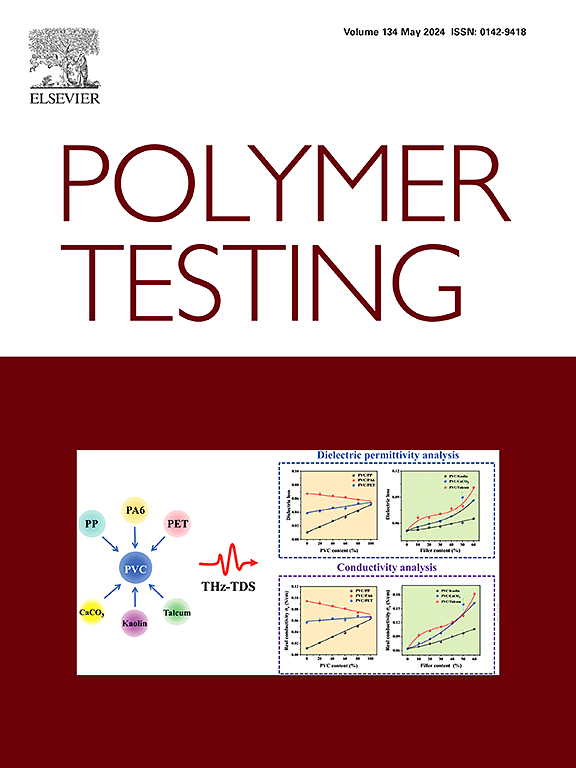Efficient chemical recycling of poly(L-lactic acid) via either alcoholysis to alkyl lactate or thermal depolymerization to L-lactide promoted by Zn(II) catalysts
IF 5
2区 材料科学
Q1 MATERIALS SCIENCE, CHARACTERIZATION & TESTING
引用次数: 0
Abstract
Poly(lactic acid) (PLA), a commercially fully bio-based and biodegradable polymer, stands out as a sustainable alternative to commodity plastics. Its current end-of-life management involves composting, but chemical recycling would be more appropriate for a circular economy model. Here we report two very efficient chemical recycling pathways for commercial high molar mass and highly crystalline PLA samples, both ones promoted by different imidazole[1,5-a]pyrid-3-yl)phenolate Zn(II) catalysts: (i) alcoholysis was easily achieved by simply treating the polymer samples in boiling methanol in the presence of 1 % Zn(II) catalyst, resulting in up to 99 % yield and selectivity in methyl lactate; and (ii) chemical recycling to the monomer was achieved by heating the polymer samples at 180 °C under vacuum or in a nitrogen flow in the presence of 0.1 % Zn(II) catalyst and a highly boiling alcohol, resulting in up to 99 % yield of L-lactide, having high chemical and steric purity, which could be repolymerized without any further purification.
求助全文
约1分钟内获得全文
求助全文
来源期刊

Polymer Testing
工程技术-材料科学:表征与测试
CiteScore
10.70
自引率
5.90%
发文量
328
审稿时长
44 days
期刊介绍:
Polymer Testing focuses on the testing, analysis and characterization of polymer materials, including both synthetic and natural or biobased polymers. Novel testing methods and the testing of novel polymeric materials in bulk, solution and dispersion is covered. In addition, we welcome the submission of the testing of polymeric materials for a wide range of applications and industrial products as well as nanoscale characterization.
The scope includes but is not limited to the following main topics:
Novel testing methods and Chemical analysis
• mechanical, thermal, electrical, chemical, imaging, spectroscopy, scattering and rheology
Physical properties and behaviour of novel polymer systems
• nanoscale properties, morphology, transport properties
Degradation and recycling of polymeric materials when combined with novel testing or characterization methods
• degradation, biodegradation, ageing and fire retardancy
Modelling and Simulation work will be only considered when it is linked to new or previously published experimental results.
 求助内容:
求助内容: 应助结果提醒方式:
应助结果提醒方式:


